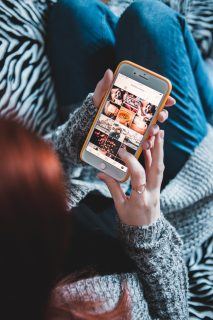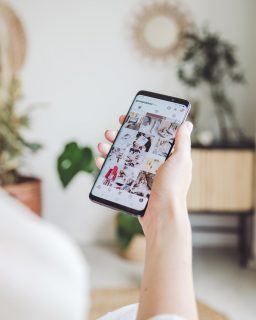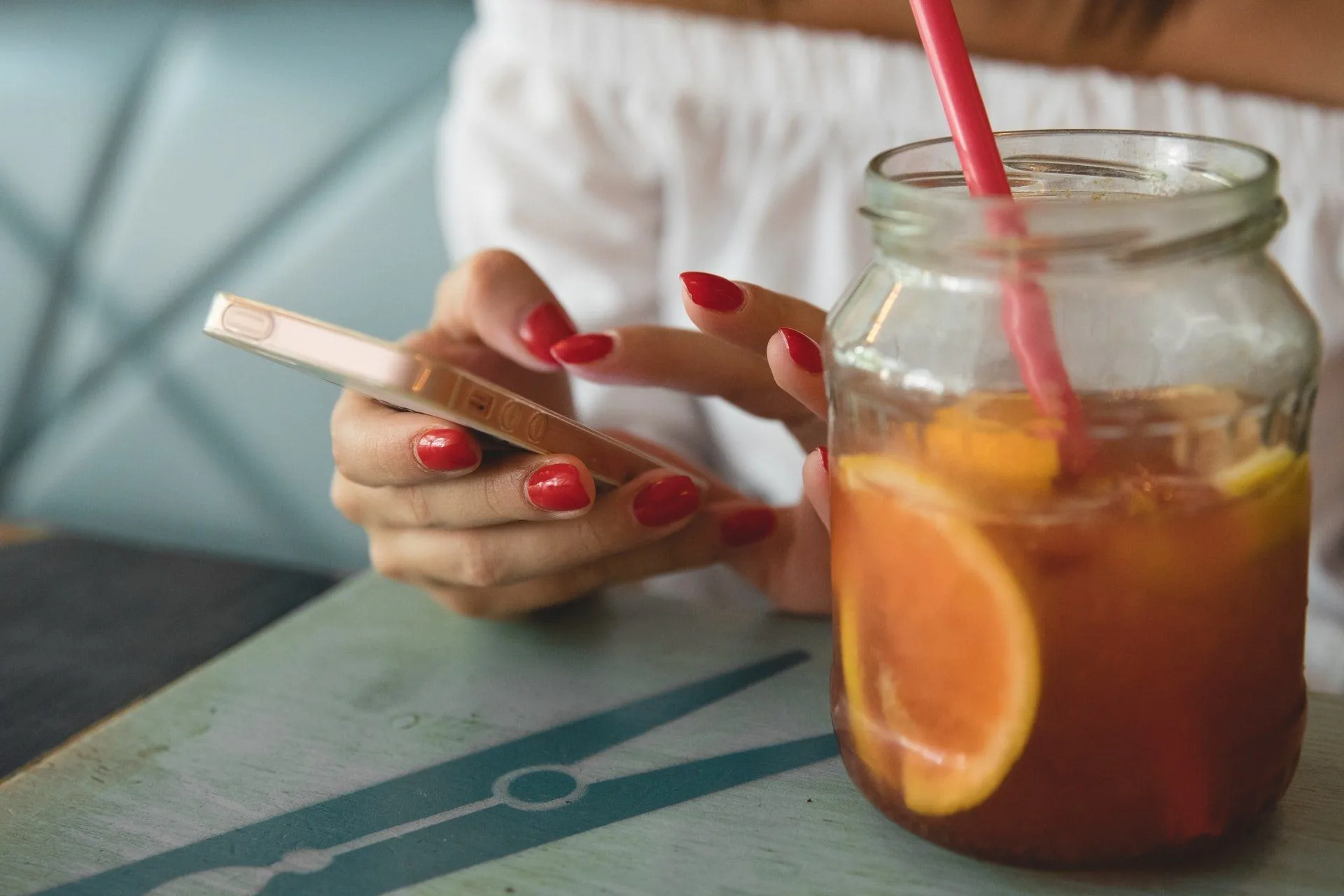It’s no secret that millions of people around the world spend an eye-watering amount of time scrolling through their phones. However, a more worrying and addictive trend is doomscrolling.
Is this you?
Merriam Webster describes doomscrolling as a tendency to continue to scroll through bad news. Whether that news is saddening, disheartening, or depressing.
Scrolling vs doomscrolling
Isn’t it just scrolling? Well, not really. Covid-19 has already created new barriers for those who already suffer from mental health issues. The ensuing economic downturn and mental health challenges appear to have ignited doomscrolling, or doomsurfing.
Addicted to smartphones
Unfortunately, it starts with our general scrolling habits. Interestingly, eye specialists regularly monitor the impact of digital screen use on eye health and have picked up on some scary trends in the UK. The folks at Lenstore shared their research with us and it piqued our interest.
Over 50% Of Individuals In The UK Admit To Being Addicted To Scrolling

Photo by Erik Mclean on Unsplash
Doomscrolling and even just scrolling are a result of excessive social media usage and smartphone addiction.
51% of participants describe themselves as addicted to scrolling through their phones. Scrolling addiction seemed to increase depending on which generation you were born in. With 86% of millennials and 82% of Gen Zs experiencing scrolling addiction compared to just 42% of baby boomers.
Although our scrolling habits may provide us with some light entertainment, extended periods of screen time have been associated with conditions such as tired eyes and fatigue. 55% of survey participants said they have experienced tired eyes when scrolling through their phones.
While a further 42% admitted to continuing to scroll even when they experience eye strain.
Their findings also show that Brits spend three hours scrolling through their phones every day. Which amounts to an impressive 46 days each.
But why is the doomscrolling trend so addictive and worrying?
Doomscrolling is not new. Due to our natural negative bias, we are more likely to look for negative news than positive news.
Social media use has been shown to have a harmful impact on mental health in studies. It causes worry and despair, increases loneliness, and leads to harmful comparisons with others. Doomscrolling now adds another degree of devastation to the misuse of social media, with news headlines about the disease, deaths, violence, and political crises.
Fanning mental health flames
Experts are concerned that doomscrolling is a game that reinforces negative feelings and thoughts. When you’re depressed or nervous, it’s natural to look for news and information to validate your feelings. This becomes a vicious loop that drags you down.
It aggravates mental disorders. Existing mental health concerns are exacerbated by this cycle of turning to bad news.
If you have or are at risk for depression or anxiety, the habit can set off an episode or exacerbate symptoms.
Doomscrolling also intensifies fear and anxiety. Rumination, a harmful habit that exacerbates depression, is triggered by scrolling through gloomy news headlines. It can also make you feel anxious, sometimes leading to panic episodes.
It will keep you awake at night
Doomscrolling will keep you up at night. Many people read through their social media accounts before night, which increases tension just when you’re attempting to go to sleep. Sleep deprivation exacerbates stress, metabolic health, and of course other mental health difficulties, perpetuating the vicious cycle.
The consequences for mental health can be more severe
4 Tips On Reducing The Amount Of Time You Scroll Through Your Phone
Neurolinguistic programming coach Rebecca Lockwood explains that it starts with reducing the amount of time you scroll on your phone. Full stop.
Check Your Phone At Allocated Times

Photo by Georgia de Lotz on Unsplash
Setting an allocated amount of time for scrolling through your phone is an extremely effective method. It helps a lot to cut down your screen time. By doing so you will become much more present both with yourself and the people around you.
Turn Off Your Notifications
This tip may seem obvious, but reducing the constant stream of notifications that get sent to your phone is an important step. Taking some time to yourself away from your phone can be a great way to reconnect with your surroundings.
Leave Your Phone In A Different Room
For some, turning off their notifications may not be enough to keep themselves away from their devices. Creating some distance between you and your phone is important especially when you are spending quality time with loved ones. By doing so, you make space for real connections and conversations.
Delete Social Media Apps To Avoid Aimlessly Scrolling
This will not only help with the habit and amount of time that is spent on scrolling, but also help reduce any negative impacts social media may be having on you.
How to STOP doomscrolling
First, you need to check to confirm that the news source you’re reading is legitimate.
In addition, make it a practice to read happy news and to share it with your friends and family.
The STOP method
Try the STOP method. If you’re having trouble controlling the scrolling, use the STOP method. If you feel you’ve gone too far with your screen time and can’t control your fingers, say STOP loudly while giving yourself a physical stimulus, such as a tap on the hand. When you do this often enough, your brain will learn to recognize when it’s time to quit what you’re doing.
Do a digital detox
From time to time, it’s a great idea to do a total digital detox. Here are some ideas on how to detox from your screen.
The bottom line
We are all living with enough challenges, we do not need to pile more on. Become more conscious of how much you scroll through your phone, particularly if you are doomscrolling. Then address it before it gets out of hand. You will gain time to do far better things with your time. You will find life easier to take head-on.
References
If you want to learn more about the Lenstore study’s facts and insights, click here doomscrolling.
About Rebecca Lockwood
 Rebecca is an award-winning Master NLP coach, NLP Trainer, Author, a Mum to 2 young girls Eva and Renae and everything she does is to make a difference in peoples lives.
Rebecca is an award-winning Master NLP coach, NLP Trainer, Author, a Mum to 2 young girls Eva and Renae and everything she does is to make a difference in peoples lives. 




![women [longevity live]](https://longevitylive.com/wp-content/uploads/2020/01/photo-of-women-walking-down-the-street-1116984-100x100.jpg)









